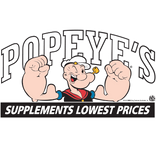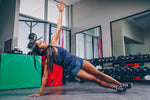
Out of Lockdown and Back to Sports!
Bio:
Brendan Gillanders is a 7-year Canadian Football League (CFL) veteran and is currently a running back for the Ottawa REDBLACKS. He graduated from the University of Ottawa in 2014 with a degree in Human Kinetics and has held both Personal Training (CPT) and Strength Coach (CSCS) Certifications. Brendan works in multiple gyms in Ottawa each offseason, helping dozens of athletes reach their goal of playing university and professional sports. With the cancellation of the 2020 CFL season due to COVID-19 measures, Brendan has taken his off-season gig fulltime and now offers personal training to athletes and the adult population to help “weekday and weekend warriors” reach their fitness goals. IG: @b_gillanders
Getting Back in the Game: Your Training Plan
What do you have in common with a CFL player? We both have not played sports in a very long time. In fact, November 1st, 2019 is the last time I played in a football game. If you have read my previous article you are familiar with the struggle I went through to prepare for the 2020 season which would eventually get cancelled. I could not have predicted this article would remain relevant until spring of 2021 when the vaccines would start to roll out, gyms would reopen and returning to sports would be within sight. Where am I going with this? Well, I am glad you asked…
Fitness magazines, weightlifting websites, your gym pal that has an opinion on everything: these are the main sources of training information for the average gym-goer. Whether you are a high school athlete, former athlete, or a weekend warrior if you visit one of these resources you are most likely to be presented with two different ways to train: power lifting or bodybuilding. Unfortunately, relying on one of these training methods exclusively can and will hurt many physical qualities required to help you in your sport. I am here to offer you a third option: train like the athlete you are or desire to be!
My goal is to present a complete blueprint of how to train and supplement in a way that will help you significantly increase your athleticism and prepare you for your return to glory in whatever sport that may be!
Training: Splits are Golden!
I recommend one of two weekly training splits as this methodology works very well with athletes and weekend warriors alike! What is the difference? The 3-day training split offers more flexibility in weekly planning while the 4-day training split spreads the volume out over four days resulting in faster workouts and easier recovery. Choose what best matches you!

“Sport Specific Activity” (SSA) Explained:
We are targeting a constant heart rate between 130-150 beats per minute and for most individuals this will range between 65-80% of your max heart rate. To make the most of your 20 minutes I suggest using an activity that you perform directly in your sport (basketball – jogging or shooting, soccer – jogging or ball skills, football – sprint-technique work or catching, hockey – rollerblading to the gym).
This cardiovascular training can act as your warm-up or be done earlier in the day. The intensity of this training is low enough that it will not interfere with your body’s ability to perform the weight training but high enough to elicit some benefits associated with this training type.
Plyometrics and sprints are likely the most important training you will be doing if

your sport is played on a court, field, or pitch. They will be trained twice per week in the same session, usually before an upper body weight training session. Plyometrics should vary from session to session with an emphasis on jump height, jump length and minimal ground contact time.
Both bilateral and unilateral hops, skips, bounds, and jumps with an emphasis on jump height and jump length can all be used. For video examples of my own plyometric training click here. Since we are training sprints twice per week alongside our plyometrics I would suggest training acceleration and change of direction together on the first sprint session of the week and then training longer maximum velocity sprints in the second session. If you have not sprinted in a long time, make sure you warm-up properly to lessen your chance of injury. For a complete sprint warm-up click here. In order to ensure recovery from your sprint workouts, I would suggest keeping the total distance of all sprints to around 400 meters per session.
If you noticed the quotations around some “off” days, let me explain. Athleticism is built through variation of movement. These off days are your chance to explore new activities or games. Personally, I love performing yoga sessions on the off days in the winter, potentially followed by a skate on the canal or snowboarding down one of the many ski hills Gatineau has to offer. Once the weather is nice enough to get outside, I might perform yoga in the morning followed by golf, tennis, long boarding, spike ball or volleyball in the afternoon. Acquiring new movement/sport skills will not negatively affect your primary sports skills; generally, your new abilities will enhance your athleticism.
Before I get into how to set up your weight training, I want to make sure two things are very clear:
- When training for athleticism, weight training is only a means to help develop athletic qualities: strength, power, stability, coordination, and balance which in turn have the potential to help with the development of qualities associated with sport: speed, agility, change of direction and movement skills.
- You are therefore not going to the gym to get better at the individual exercises you perform, you are going to the gym and performing the exercises to aid in the adaptations you are seeking to create such as increased strength, power, speed, rate of force production, agility, change of direction and overall movement abilities and how they are displayed in your sport.
-
Ex. A big bench press might be admirable in a gym setting but does not guarantee you will be able to display upper body power in the unpredictable setting of your sport.
If you understand both concepts, then you will also understand that exercise selection can easily become the least important training variable. For example, off the top of my head I can think of about 20 exercises that all involve hip extension so which exercises do you choose? Well, that is for you, your sport, and your goals to decide. The more variability of movement in your sport the more variability you should include in your training.
In General:

To check out some of my favourite exercises click here
Now let’s talk about how you are going to use these exercises to help improve your athleticism. To develop power, you need to develop both strength and speed qualities. From my experience most individuals spend too much time focusing on maximum strength and it negatively affects their body’s ability to move fast. It is therefore important to not only lift heavy and slow but light and fast.

As you can see from this chart, maximum strength and maximum velocity are trained in very different ways. Getting stronger is an important piece to being able to increase your power however it comes at the detriment of movement speed. To attenuate this training phenomenon, it is important to spend time training all aspects of this force/velocity chart. There are several ways this can be accomplished and if you are not a high-level athlete there is almost no reason to periodize your own training. It would serve you better to stay as athletic as possible all year round!
Contrast Training: This training method uses both strength and speed exercises in the same workout. In traditional superset fashion, you perform a maximum strength exercise followed by exercises of less intensity. One benefit of this style of training is that the maximum strength exercise potentiates your neuromuscular system allowing your body to perform better on the lower intensity exercises that follow.
-
Ex. Back Squats at 90% of 1RM followed by Back Squats at 30% of 1RM followed by jump squats
Undulated Training: This training style differentiates training sessions daily to train both areas of the force-velocity curve on separate days but in the same week.
-
Ex. Monday you train max strength and strength-speed, Thursday you train peak power and speed-strength.
In terms of volume and set/rep schemes, the higher the intensity (closer to 1RM) you are, the less volume you will be able to handle. As a rule, when training maximum strength, I will stay between 9-15 reps per exercise and I will never exceed 40 reps total per exercise when training at any other intensity. It is also extremely important to note that when training peak power, speed-strength and maximum velocity it is paramount that the movements are done as fast as possible and training fatigued is therefore not advisable. Long rest periods should be used and the number of reps you perform should be dictated by how fast your movement speed deteriorates. If your movement speed slows down after 5 reps the set should be finished.

If you build your workout system following all the above-mentioned principles, you cannot go wrong. Ensure you change exercises every 3-4 weeks to ensure you do not develop any overuse injuries and to aid in movement variation.
Supplementing for Success:
First and foremost, your body’s ability to repair itself from the new training demands will have a huge impact on your daily performance. While your diet and meal prep is priority #1, I also recommend supplementing with protein after each workout to ensure your muscles are getting the fast anabolic boost they need. For those looking to consume a protein specifically after training or any who might suffer from compromised digestion try Whey Protein Hydrolysate.
Essential Amino Acids (aka: EAA’s) are also gaining in popularity for their ability to skip the digestion phase and are amazing for those struggling to put on additional size. Comprised of the 9 essential amino acids that we cannot make (must come from our food), these are what your body uses to build muscle tissue. The very best formulations take it a step further by also incorporating Arginine. This additional amino helps to maintain a positive nitrogen balance (or anabolic state) during training, perfect for those who are “hard gainers” and struggle to maintain their muscle mass.
As a final supplementation point, adequate hydration is often a very overlooked aspect of training prep and is so much more than simply drinking more water! That is why electrolytes are so important and why many opt for sports drinks. While they can help, they are expensive especially when they deliver nothing more than sugar and trace amounts of these valuable minerals! Then consider many also take caffeine and other stims to optimize their training which can further imbalance electrolyte levels and make you lose even more water.
After some experimentation, I religiously use the Pre-Workout Havok-137 prior to my gym session. With 725mg of electrolytes (potassium, magnesium, calcium & sodium) in a single serving compared to just 345mg of only 2 types in G2 Perform (591ml), I am ensuring a good balance of minerals which I lose in my sweat. This allows me that extra focus and energy I crave to train up to my potential while ensuring my muscles fire properly and keep me moving the entire training session.
*Brendan is a sponsored athlete with Athletic Alliance and exclusively uses their products to enhance his health, nutrition, workouts, and lifestyle. Athletic Alliance is certified banned substance free making it perfect choice for football and sports of any level where athletes put their body, first!



Comments
Leave a comment